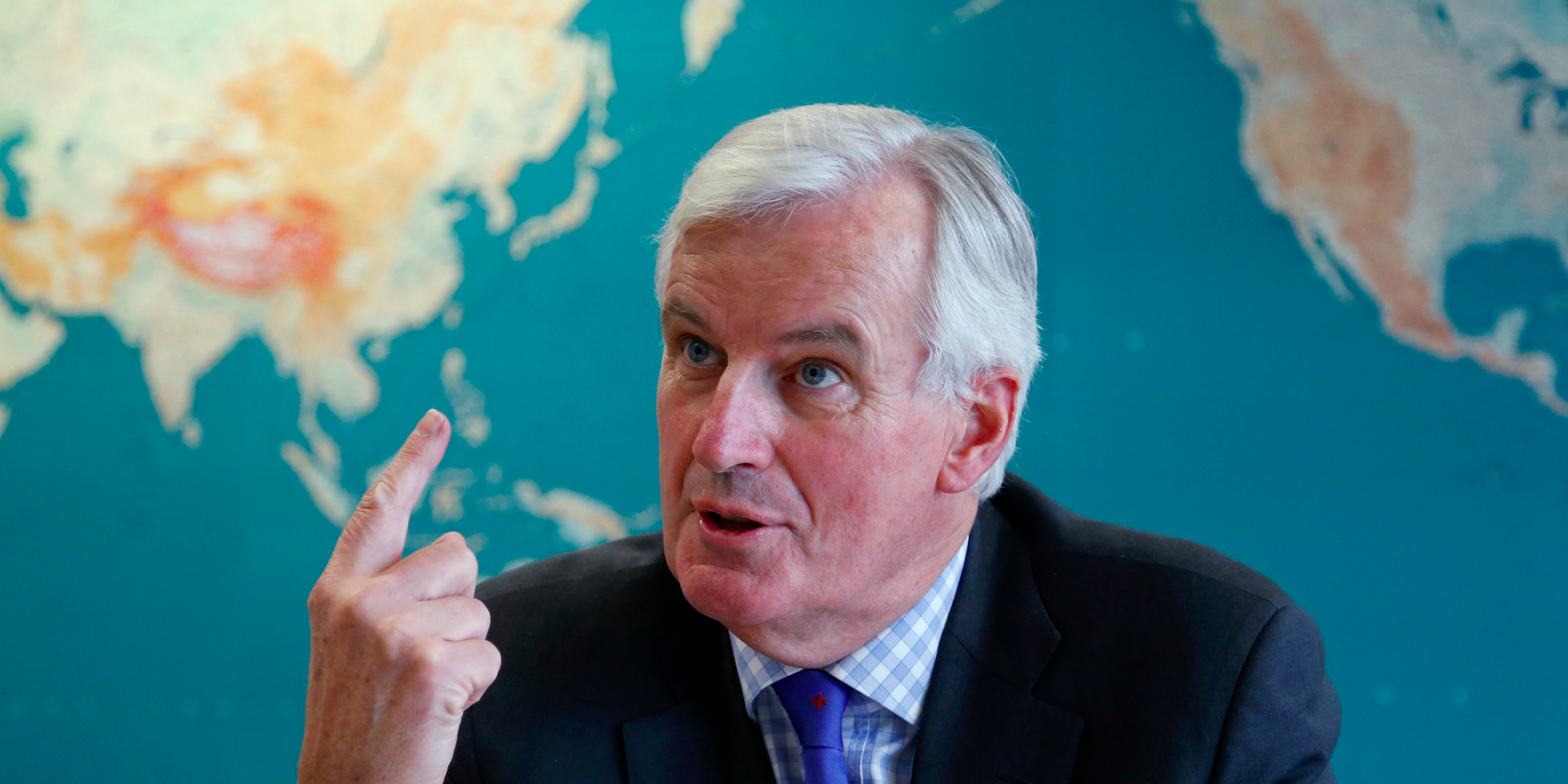- Brexit talks have been delayed while Prime Minister Theresa May forms a new minority government. EU’s chief negotiator says Britain risks not getting a deal as the clock ticks down. Delaying talks does not delay a Brexit. It only means that the time left to negotiate a deal is shorter. Britain has to leave the European Union on March 29, 2019.
The European Union’s chief Brexit negotiator Michel Barnier warned Britain that it risks crashing out of the EU without a Brexit deal if it continues to “waste” time by delaying talks.
Barnier told the Financial Times that the UK government needs to start talks “very quickly” and that it needs to appoint a team of negotiators that are “stable, accountable, and with a mandate.”
“Next week, it will be three months after the sending of the Article 50 letter. We haven’t negotiated, we haven’t progressed. Thus we must begin this negotiation. We are ready as soon as the UK itself is ready,” said Barnier.
“My preoccupation is that time is passing, it is passing quicker than anyone believes because the subjects we have to deal with are extraordinarily complex. I can’t negotiate with myself.”
Prime Minister Theresa May triggered Article 50 in March, which kickstarted the official two year period where Britain has to negotiate its deal to leave the EU. Britain will leave the EU on March 29, 2019.
Delaying talks does not delay Brexit. It only means that the time left to negotiate a deal is shorter.
May called for a snap election in April to gain a bigger majority than the seats her Conservative party had at the time. The greater the majority, the easier it is to push through legislation.
But the Conservatives failed to win 326 seats in the general election - the number needed to have an outright majority. The party still won the largest number of seats and votes - with 318 seats and 12,667,213 votes (42.8% of the overall vote).
Since then, the Tories have had to put Brexit talks on the backburner while it tries to form a minority government with Northern Ireland party DUP leader Arlene Foster. There were statements from Downing Street that the DUP had agreed to the terms of a so-called confidence and supply deal. But the following day, the government backtracked on the statement.
Meanwhile, reports say that May's cabinet reshuffle is hinting at a "soft Brexit" - access to the Single Market but also adhering to the principles of the EU, like the Freedom of Movement act. It's pretty much the same Britain has now as an EU member but with a financial cost and the loss of negotiating power over EU legislation once it leaves the bloc.

